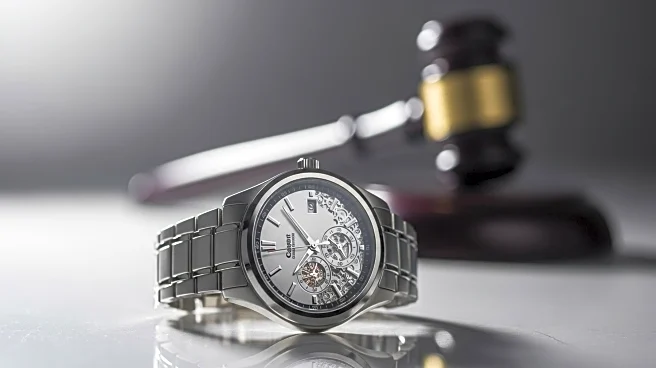What's Happening?
The Paris Court of Appeal has ruled against Rolex's attempt to keep certain business information confidential in an ongoing antitrust case. The case involves Rolex's appeal against a decision by the French Competition Authority, which sanctioned the company for banning online sales by authorized distributors. The court upheld the confidentiality of data from 2018 onward, citing it as trade secrets, but refused to seal information from 2017 and earlier, applying the 'five-year presumption' principle. This principle suggests that business information older than five years loses its confidential status unless proven otherwise.
Why It's Important?
The court's decision is significant for luxury brands that rely on secrecy to maintain their market position. By challenging Rolex's confidentiality claims, the ruling could lead to greater transparency in the luxury watch industry, potentially affecting brand strategies that depend on scarcity and exclusivity. The decision underscores the legal tension between maintaining trade secrets and complying with transparency requirements, which could have broader implications for other luxury brands facing similar legal challenges.
What's Next?
Rolex must revise its submissions to unredact older data, which could reveal more about its historic production and allocation practices. The court's decision may serve as a precedent for future cases, encouraging other luxury brands to reassess their confidentiality strategies. The ongoing legal proceedings will continue to explore the legality of Rolex's online sales prohibition, with potential impacts on its business operations and market strategy.











